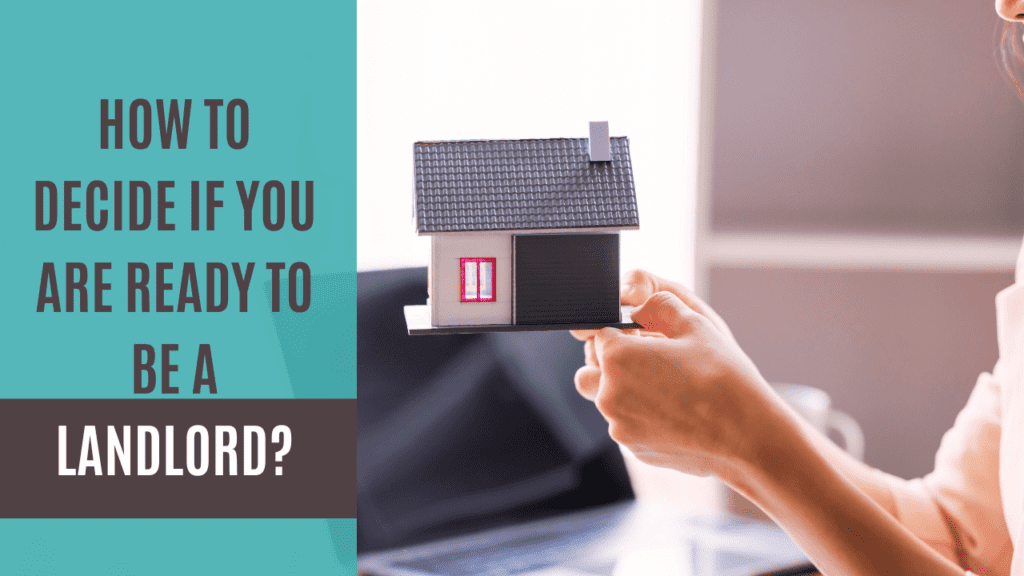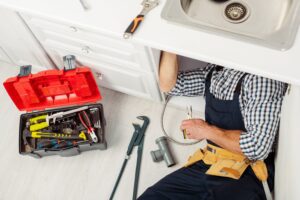
What do you think it’s like to be a landlord?
Imagining yourself as a landlord and actually being a landlord are often two different things. Sometimes, we’ll talk to a person who begins renting out a property thinking it’s as easy as finding a tenant and collecting rent.
It’s rarely that easy.
Becoming a landlord is natural for some people. If you have the personality traits that are needed (patience, attention to detail, good at multitasking, etc.) and you also have the time and the resources to dedicate to leasing, managing, and maintaining a rental property, you might be ready to be a landlord. You might even be good at it.
But, if you lack the personality traits that are needed, you’re emotionally attached to the property you’re renting out, or you have no experience at all with the rental market, the maintenance that’s required on a property, or the best way to provide customer service to tenants, the learning curve may be steep.
Renting out a home can be a fantastic financial opportunity, especially in our part of Florida, where the demand for high-quality rental homes is high and there’s even a strong market for short term vacation rentals.
However, not everyone is cut out to be a landlord.
To effectively become a landlord and rent out a home, you must be prepared to put together a legally enforceable lease agreement, understand Florida’s security deposit laws, screen for well-qualified tenants, assemble a list of vendors and contractors, and commit to providing a positive rental experience for your tenants.
If you’re not ready to be a landlord, that doesn’t mean you can’t rent out a property. It simply means that you need a great partnership with a local property manager.
Here’s how to know if you’re ready to be a landlord.
Can you Treat this Rental Property Like a Business?
Before you become a landlord, you’ll need to evaluate whether you’re renting out a home that you’re still emotionally attached to. Is it a home you once lived in yourself? Is it a home that you’ve inherited from a family member who recently passed away?
Make sure you can detach from any emotions attached to the property. If you love the home too much, you may have a very hard time letting someone else live there.
The most successful landlords will have a business mindset when it comes to making decisions about the rental property. You need to treat the home as a small business.
Running your rental property like a business means remaining professional with your tenants. You don’t want to become overly chummy, but you still need to establish a relationship with them that’s professional and positive. You need to hold them accountable, but you also need to provide exceptional customer service. Can you do that?
Treating this property as a business also requires you to keep your finances accurate, detailed, and intact. You’ll need to track your income and expenses. It’s important to file your taxes accurately and on time. You need to declare the rent you earn as income, but you can also take a lot of deductions as a rental property owner.
You’ll have to make decisions that are best for your investment.
Here are a few other requirements for running your rental property like a business:
- You’ll need to comply with federal, state, and local laws.
- You’ll need to put together a network of vendors and contractors.
- You’ll need to understand Florida’s security deposit laws, eviction laws, and habitability requirements.
- You’ll need to understand negotiation and compromise.
It’s also important to protect yourself and your property from potential accidents or liability claims. Make sure you have the right insurance in place so you’re covered.
You cannot be a successful landlord until you are sure you’ve detached emotionally from the property. Once you can look at it as a business opportunity, you’re ready to be a landlord.
Can You Provide a Home Good Tenants Will Want to Rent?
You cannot be a landlord if you cannot provide a property that tenants will want to rent.
Well-qualified tenants are looking for clean, well-maintained homes in good neighborhoods. You’ll need to take some serious steps before you list the property on the market. Before you become a landlord, it is important to:
- Clean everything out of the property. Maybe you lived in the home previously and you still have some furniture or linens. They need to be removed. If your parents’ golf clubs are in the garage or you bought the property with the rusting lawn mower in the backyard, get rid of all those things. Tenants want to move in with their own things.
- Take care of any repair needs the property might need. Even minor things, like the door that sticks or the screen that’s loose, will need to be fixed.
- Have the home professionally cleaned. This is essential before you show the property. Every surface needs to shine and there cannot be any visible dirt, cobwebs, or dust.
- Convert your homeowner’s insurance policy to a landlord policy if you’re renting out a property you once lived in. If you don’t have the right coverage, a potential claim may be denied.
Do You Know How to Price Your Property for the Rental Market?
Most landlords have an idea of what they think their rental property is worth, but that idea really doesn’t carry a lot of weight. You need to study the market and price your home according to how it compares to other rental homes.
As you prepare to list your home for rent, make sure you have good data that can tell you what your rental range should be. You should know enough about what local rents are in order to establish an accurate rental value that’s also competitive and profitable.
What’s Your Tenant Screening Process?
You’re ready to be a landlord if you understand the importance of screening tenants carefully and consistently.
There are fair housing laws that need to be followed, and your process for choosing one tenant but denying another needs to be documented and consistent.
Tenant screening is one of the most important things that a landlord can do.
This tenant will impact what you earn and whether you have a pleasant rental experience or one that’s full of disputes, conflicts, and problems.
Here’s why finding and placing a good tenant is so important:
- You’ll have your rent paid on time every month.
- You’ll have someone helping you to take care of the property.
- You won’t have to worry about lease violations, property damage, and other potential problems.
Good landlords typically don’t want to rent to bad tenants. If you know what makes a tenant qualified, you may be ready to be a landlord.
Can You Maintain Your Rental Home?
 Maintenance is a non-negotiable. Maybe you’re not worried because your home is just a few years old or in excellent condition. That’s great, but at some point there will be an appliance that breaks down or a sink that starts leaking. As a landlord, you’ll need to plan for:
Maintenance is a non-negotiable. Maybe you’re not worried because your home is just a few years old or in excellent condition. That’s great, but at some point there will be an appliance that breaks down or a sink that starts leaking. As a landlord, you’ll need to plan for:
- Emergency maintenance
- Routine repairs
- Preventative maintenance
Protecting the condition of your property is important. Responding to the repair needs reported by your tenants requires you to be available. You’ll also need access to a great team of vendors.
There will always be minor issues like garbage disposals that are stuck and toilets that won’t flush. Sometimes, you’ll be able to fix yourself or talk your tenants through the solution. If you have warranties on things like appliances or your HVAC unit, you may not have to worry too much about repair or replacement costs.
But, there are larger issues that aren’t always anticipated. What if your water heater begins leaking or a tropical storm pushes a tree onto your roof? Will you be prepared to make those repairs?
You can’t be a landlord until you are prepared to make repairs and pay for them.
Preventative maintenance is also important. You’ll need to have systems and functions inspected and serviced. You’ll want a good landscaping partner and ongoing pest control.
Tenants become easily frustrated when the response to repair needs is lackluster.
Your preferred vendor list will be important to maintaining your home effectively. Maintenance costs are rising, but you don’t want to cut corners. You are looking for licensed and insured professionals who can do high-quality, cost-effective work.
Whether you’re ready to be a landlord or not, every rental property owner can benefit from professional property management. Property managers can help you earn more money by reducing vacancy and turnover as well as recommending upgrades and updates that will bring in higher rents and better tenants. Property managers already have vendor relationships in place and we also have systems in place to make the management of your property a breeze. We collect rent online and we establish positive relationships with tenants.
Even if you are ready to be a landlord, property management in Florida can help. You’ll find you have a better – and more profitable – rental experience. We would be happy to tell you more about how we can help you be an excellent landlord. Please contact us at Anchor Down Real Estate and Rentals.
